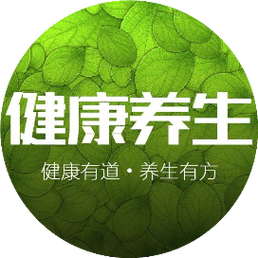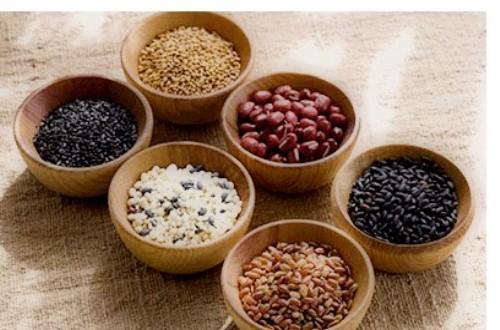# Holistic Wellness: Exploring the Benefits of Traditional Chinese Medicine (TCM) for Optimal Health
- 本文目录导读:
- Introduction to Traditional Chinese Medicine (TCM)
- Core Principles of TCM
- Herbal Medicine in TCM
- Acupuncture and Its Benefits
- Dietary Therapy in TCM
- Qigong and Tai Chi
- Integrating TCM into Modern Wellness Practices
- Conclusion
Introduction to Traditional Chinese Medicine (TCM)
Traditional Chinese Medicine (TCM) is an ancient system of health and wellness that has been practiced for thousands of years. Rooted in Chinese philosophy, TCM emphasizes the balance and harmony of the body's energies, often referred to as Qi (pronounced "chee"). TCM encompasses a variety of practices, including herbal medicine, acupuncture, dietary therapy, and Qigong. It operates on the belief that health is achieved through the maintenance of balance within the body and between the body and the environment.
Core Principles of TCM
The foundation of TCM is based on several key principles, the most prominent being the concepts of Yin and Yang and the Five Elements. Yin and Yang represent opposite but complementary forces within the body and the universe. Yin is associated with qualities such as coolness, darkness, and receptivity, while Yang is linked to warmth, light, and activity. Health in TCM is achieved by maintaining a dynamic balance between these two forces.
The Five Elements—Wood, Fire, Earth, Metal, and Water—are another cornerstone of TCM. Each element corresponds to different organs and functions within the body and is used to understand and diagnose various health conditions. For example, the Wood element is associated with the liver and gallbladder, while Fire is connected to the heart and small intestine. By understanding the relationships and interactions among the Five Elements, practitioners of TCM can develop personalized treatment plans to restore balance and promote health.
Herbal Medicine in TCM
Herbal medicine is one of the most well-known and widely used aspects of TCM. Chinese herbal medicine involves the use of natural plant, mineral, and animal products to address imbalances and support the body's healing processes. Each herb has unique properties and is often combined with other herbs to create formulas tailored to an individual's specific needs.
For instance, ginseng is a popular herb known for its ability to boost energy and improve vitality. It is often used in TCM to strengthen Qi, particularly in cases of fatigue or weakness. Another commonly used herb is ginger, which is valued for its warming properties and ability to aid digestion and alleviate nausea.

Acupuncture and Its Benefits
Acupuncture is another integral component of TCM, involving the insertion of fine needles into specific points on the body. These points, known as acupoints, lie along pathways called meridians through which Qi flows. By stimulating these points, acupuncture aims to unblock and balance the flow of Qi, thereby promoting healing and alleviating various health conditions.
Research has shown that acupuncture can be effective in treating a wide range of issues, including chronic pain, headaches, anxiety, and digestive disorders. For example, many studies have demonstrated that acupuncture can significantly reduce the severity and frequency of migraines. Additionally, acupuncture is often used as a complementary therapy for cancer patients to help manage pain, nausea, and other side effects of conventional treatments.
Dietary Therapy in TCM
Dietary therapy is a crucial aspect of TCM, emphasizing the importance of food in maintaining health and preventing disease. In TCM, foods are classified based on their energetic properties, such as temperature (hot, warm, neutral, cool, cold) and flavor (sour, bitter, sweet, pungent, salty). Each type of food has specific effects on the body's organs and meridians.
For instance, warm and pungent foods like garlic and ginger can help to invigorate Yang energy and improve circulation, making them beneficial in colder climates or for individuals with cold symptoms. On the other hand, cooling foods like cucumber and watermelon can help to clear heat and reduce inflammation, making them ideal for hot climates or conditions characterized by excessive heat.
Qigong and Tai Chi
Qigong and Tai Chi are mind-body practices that are integral to TCM. These exercises combine movement, meditation, and controlled breathing to enhance physical and mental well-being. Qigong involves a series of gentle movements and postures designed to cultivate and balance Qi, while Tai Chi, a form of martial arts, incorporates slow, flowing movements to improve strength, flexibility, and balance.
Both practices have been shown to provide numerous health benefits, including reduced stress, improved cardiovascular health, and enhanced immune function. Regular practice of Qigong or Tai Chi can help to harmonize the body's energies, making them valuable tools for maintaining health and preventing disease.

Integrating TCM into Modern Wellness Practices
In recent years, there has been a growing interest in integrating TCM into modern wellness practices. Many people are turning to TCM as a complementary approach to conventional medicine, seeking its holistic and preventive benefits. For example, TCM principles can be incorporated into daily routines through mindful eating, stress management techniques, and regular physical activity.
One of the strengths of TCM is its personalized approach to health. Unlike a one-size-fits-all model, TCM treatments are tailored to the individual's unique constitution, lifestyle, and health concerns. This individualized approach can help to address the root causes of health issues, rather than just treating symptoms.
Conclusion
Traditional Chinese Medicine offers a comprehensive and holistic approach to health and wellness. By focusing on the balance of Qi, the interplay of Yin and Yang, and the harmonization of the Five Elements, TCM provides valuable insights into maintaining optimal health. Through practices such as herbal medicine, acupuncture, dietary therapy, Qigong, and Tai Chi, individuals can enhance their physical, mental, and emotional well-being.
As more people recognize the benefits of TCM, it continues to gain acceptance and integration into modern healthcare systems. By combining the wisdom of ancient traditions with contemporary knowledge, TCM can play a vital role in promoting a balanced, healthy, and fulfilling life.
转载请注明:成都会所桑拿-四川成都休闲桑拿推荐论坛! » 武汉桑拿 » # Holistic Wellness: Exploring the Benefits of Traditional Chinese Medicine (TCM) for Optimal Health
版权声明
本文仅代表作者观点,不代表成都休闲网立场。
本文系作者授权发表,未经许可,不得转载。

























